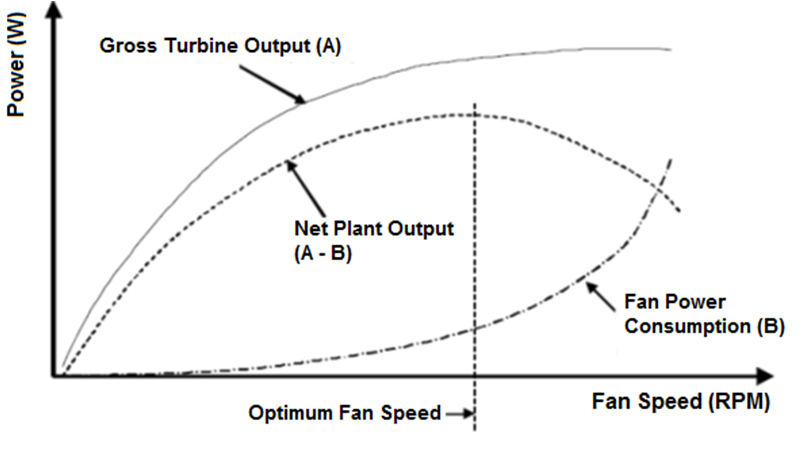MACCSol
The MACCSol project achieves potential efficiency gain of 4% over conventional ACC

Needs
Concentrated Solar Plants operable in desert areas without water
Solar power is a powerful renewable energy source, but current technology relies on availability of water. MACCSol was an EU-funded research project which set out to develop new dry cooling technologies to harness solar power without reliance on water. Such technology would harness solar power in highly productive areas across the globe, helping the EU reach its 2020 renewable energy targets.
A number of international suppliers with proven expertise in the design and manufacture of air management products were assessed as potential partners for this project.
Solution
Advanced fan control ensures energy efficiency
Aubren were selected as a key partner and assigned responsibility for the design and manufacture of key components for the new dry cooling system, specifically the fan control software, the fan modules and the electrical control panel.
Aubren developed the control software which allowed the fans to be individually controlled across a modbus network, either locally or remotely. The controllers could monitor the ambient temperature, condensate temperature, mass flow rate of steam, steam pressure after turbine, wind speed and wind direction, bringing a whole new level of control and functionality. This level of control allows the fans to be run at optimum fan speed, maximising the net plant output. Aubren collaborated with organisations, UL and RR Projects, in the design of the fan modules and the metal support structure to deliver a coordinated installation.
Outcome
Potential efficiency gain of 4% over conventional ACC
Aubren played an instrumental role in helping to advance the technology beyond its current advanced state, and as a result, keep the EU at the forefront of dry cooling technologies for CSP electricity generation. A key contribution was the adaptation of fan control algorithms which allowed the fan speed to be varied independently, maximising plant power output irrespective of ambient conditions.
The long term economic and societal impacts of the project are summarised as follows:
- Concentrated Solar Plants (CSP) will be operable in desert areas without water.
- The cost of electricity generation using CSP will be reduced by up to 4%.
- Reduced carbon emissions: each Gigawatt generated by CSP reduces CO2 emissions by approximately 273 tonnes using current cooling methodologies.






